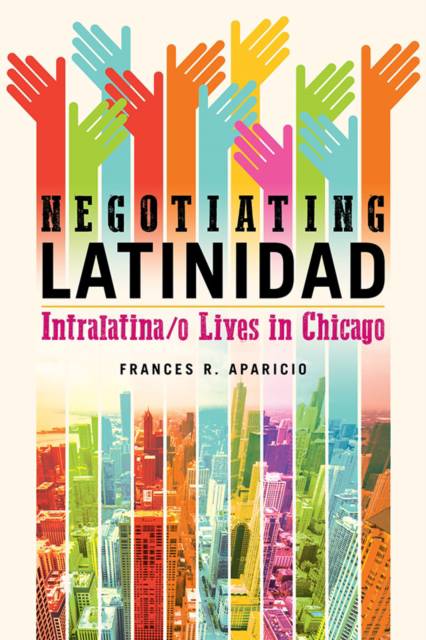
- Afhalen na 1 uur in een winkel met voorraad
- Gratis thuislevering in België vanaf € 30
- Ruim aanbod met 7 miljoen producten
- Afhalen na 1 uur in een winkel met voorraad
- Gratis thuislevering in België vanaf € 30
- Ruim aanbod met 7 miljoen producten
Zoeken
€ 131,45
+ 262 punten
Omschrijving
Longstanding Mexican and Puerto Rican populations have helped make people of mixed nationalities--MexiGuatamalans, CubanRicans, and others--an important part of Chicago's Latina/o scene. Intermarriage between Guatemalans, Colombians, and Cubans have further diversified this community-within-a-community. Yet we seldom consider the lives and works of these Intralatino/as when we discuss Latino/as in the United States.In Negotiating Latinidad, a cross-section of Chicago's second-generation Intralatino/as offer their experiences of negotiating between and among the national communities embedded in their families. Frances R. Aparicio's rich interviews reveal Intralatino/as proud of their multiplicity and particularly skilled at understanding difference and boundaries. Their narratives explore both the ongoing complexities of family life and the challenges of fitting into our larger society, in particular the struggle to claim a space--and a sense of belonging--in a Latina/o America that remains highly segmented in scholarship. The result is an emotionally powerful, theoretically rigorous exploration of culture, hybridity, and transnationalism that points the way forward for future scholarship on Intralatino/a identity.
Specificaties
Betrokkenen
- Auteur(s):
- Uitgeverij:
Inhoud
- Aantal bladzijden:
- 220
- Taal:
- Engels
- Reeks:
- Reeksnummer:
- nr. 1
Eigenschappen
- Productcode (EAN):
- 9780252042690
- Verschijningsdatum:
- 15/10/2019
- Uitvoering:
- Hardcover
- Formaat:
- Genaaid
- Afmetingen:
- 152 mm x 231 mm
- Gewicht:
- 453 g

Alleen bij Standaard Boekhandel
+ 262 punten op je klantenkaart van Standaard Boekhandel
Beoordelingen
We publiceren alleen reviews die voldoen aan de voorwaarden voor reviews. Bekijk onze voorwaarden voor reviews.








